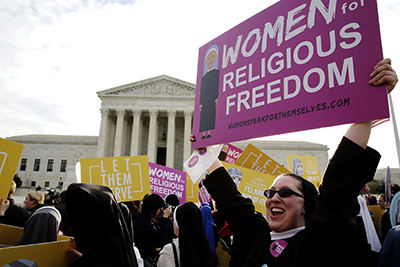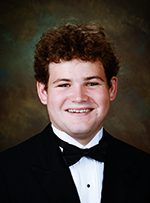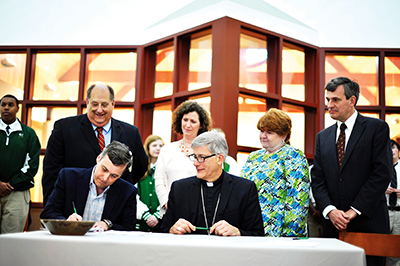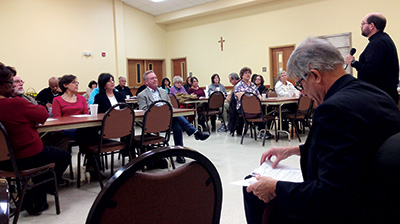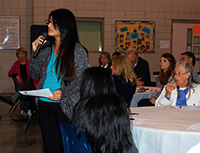JACKSON – Catholic Charities will award the Good Samaritan Award to Michele and Thomas Harris and the late Bishop William Houck during this year’s Bishop’s Ball in June. Bishop Houck was selected before he died in early March and the board decided to honor him posthumously for all his devotion to the organization.
“Many of the programs in Catholic Charities and within the diocese were started by Bishop Houck. Catholic Charities was in the beginning stages under Bishop Houck’s leadership and his vision to see the works of the organization truly assist those who throughout the diocese is being met,” said Mike Brechtel, chairman of the Catholic Charities governance council.
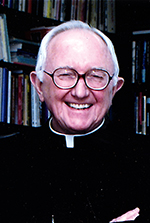
Houck
“His service both to our diocese as a bishop and then as president of Catholic Extension Society helped more people than you can imagine. He is truly deserving of this honor and his legacy and service will never be forgotten,” added Brechtel.
The Harrises are both CPAs and have successfully worked together at Home-Land Title, since 2003. They have two children, Mabry, who is a junior at Mississippi State University, and Jonathan, who is a junior at Hartfield Academy.
Michele has served on the board of the Catholic Foundation for a number of years and is also a member of the Diocesan Finance Council.
Thomas’ first experience with Catholic Charities was through his mother, who served on the board in the late 80’s and early 90s, serving as chairman of the development, finance and audit committees, and as chairman of the governance council.
“Being CPA’s always lead to treasurer/finance positions in many organizations that we found ourselves through the years, which in turn led to so much more knowledge and insight about how to serve and assist them in accomplishing their missions,” said Michele.
At Flowood St. Paul Parish, Thomas has severed as pastoral council president for eight years. He also served on the RCIA instruction team, a tradition, like Catholic Charities, that was handed down from his mother. He is a past membership chairman for the Knight of Columbus Council 10216, and has also served his parish as an extraordinary minister of Holy Communion, catechist, commentator, lector and usher.
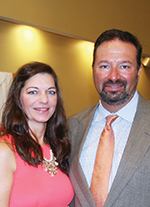
Michele & Thomas Harris
Michele has served on the chairman of the finance committee at St. Paul’s for an even longer period of time. She was the administrator of the building committee that oversaw the construction of St. Paul’s family life center. She has also served as an extraordinary minister of Holy Communion, board member of the St. Paul’s Learning Center, and as a catechist.
“Thomas and Michele truly have servants’ hearts and lead by example bring many people of different faiths together to work and have fun doing it, said Brechtel. “I have personally witnessed many individual families who have benefitted from their acts of kindness and I know they never seek recognition,” he added.
“Connecting people with resources offered by Catholic Charities whether it is financial, spiritual or physical has been our most gracious gift to share,“ said Michele.
The ball is set for Saturday, June 4, at the Country Club of Jackson and tickets are available now for $85 per person. To reserve tickets call 601-326-3714.


